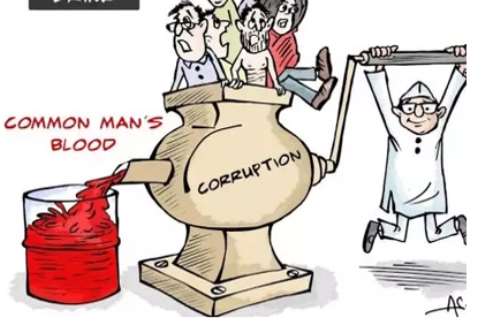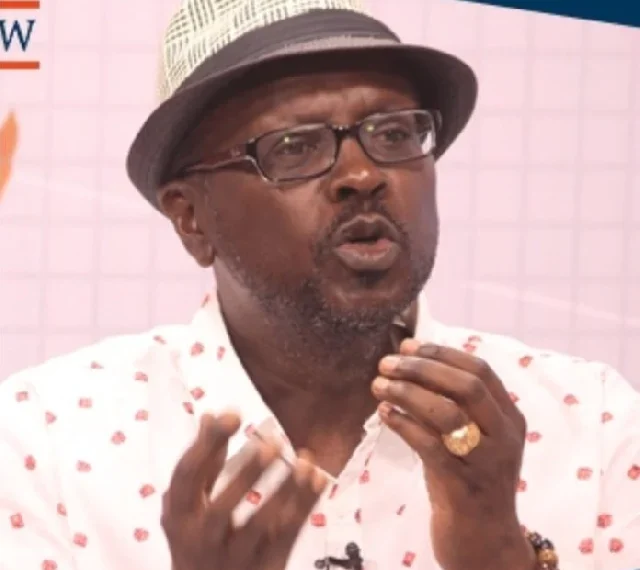Professor Stephen Kwaku Asare, D&D Fellow in Public Law and Justice at the Centre for Democratic Development (CDD-Ghana), has expressed deep disappointment in Ghana’s failure to demand strict accountability.
In a statement, making a compelling case for accountability, Professor Asare, mostly known as Kwaku Azar, bemoaned Ghana’s lax accountability regime, drawing sharp contrasts between the swift enforcement action in Mauritius and what he describes as a near-immunity culture among political elites in Ghana.
“This week, the financial crimes commission of Mauritius stunned the region by arresting two powerful former officials: a former finance minister and the central bank governor. Yes, that actually happened, on the east coast of Africa.
“Their crime? Alleged embezzlement of 300 million Mauritius rupees ($6.7 million) from a state entity created to support companies during the COVID-19 pandemic.”
Professor Stephen Kwaku Asare
To Professor Asare, the developments in Mauritius offer a stark lesson — and a painful reminder of how far Ghana lags behind in building credible, independent accountability institutions capable of holding the powerful to account.

Through a mixture of satire and somber reflection, Professor Asare painted a portrait of Ghana, referred to symbolically as “Umuofia,” evoking Chinua Achebe’s literary setting, where leadership misconduct is often shielded by a potent mix of political interference, legal obstruction, and institutional inertia.
“In Umuofia, our leaders are above such pettiness. They do not embezzle from our state-owned enterprises. And falsify growth rates? Budget deficits? Public debt? Never! Our books are pristine, our statistics divine.”
Professor Stephen Kwaku Asare
The sarcasm was deliberate and cutting. Professor Asare underscored that, unlike Mauritius, in Ghana, the system is rigged to protect the political class.
Investigations and arrests, he noted bitterly, are largely reserved for the ordinary citizen, adding that when efforts are made to probe the powerful, the response is often swift and ruthless.
Here, Professor Asare indicated that the responses are mostly injunctions filed in court to paralyze already under-resourced and demoralized investigative agencies.

Weaponization of Legal System
This weaponization of the legal system to frustrate accountability, he stressed, has become a major impediment to justice.
“And on the off chance that one of our mighty men is actually prosecuted? Don’t worry—bail is granted before the ink dries on the charge sheet. Then begins the beautiful ballet of adjournments and interlocutory appeals.
“It’s a strategic masterpiece, really. Delay after delay, until the nation collectively forgets why the prosecution started in the first place.”
Professor Stephen Kwaku Asare
At the heart of Professor Asare’s lament is a deep concern about the erosion of public trust in institutions tasked with protecting the public purse.
Without credible accountability, he warned, public officials will continue to act with impunity, emboldened by a system that offers more protection than punishment.
For Professor Asare, the failure of Ghana’s accountability framework is not for a lack of laws or constitutional provisions, but rather, it is a failure of will, leadership, and institutional independence.

The existence of bodies like the Economic and Organized Crime Office (EOCO), the Commission on Human Rights and Administrative Justice (CHRAJ), and the Office of the Special Prosecutor has not translated into meaningful enforcement where political figures are concerned.
Moreover, he drew attention to the broader consequences of this inertia: weakened democracy, cynicism among citizens, and a stifling of national development.
Ending his reflections with a sharp reminder, Professor Asare warned that unless Ghana confronts its accountability deficit, it risks deepening the crisis of governance, economic mismanagement, and citizen disengagement.
“So, well done, Mauritius. Good job standing up for accountability and good governance. Umuofia could learn a thing or two. But of course, we won’t.
“We’re too busy ignoring the low-hanging fruits, like the public power company blowing through its budget, or importing goods it cannot even clear from the ports. Nothing to see here. Move along.”
Professor Stephen Kwaku Asare
READ ALSO: COCOBOD Debunks False Reports on Cocoa Producer Price Announcement




















